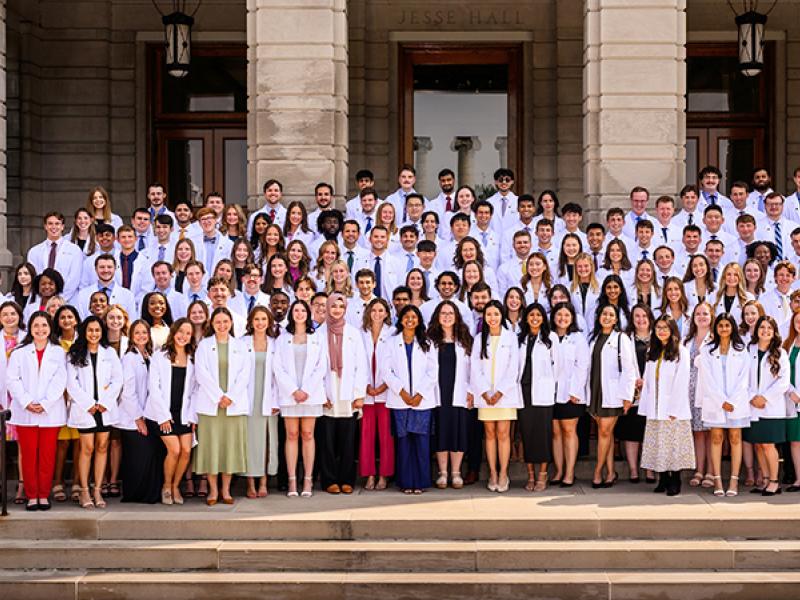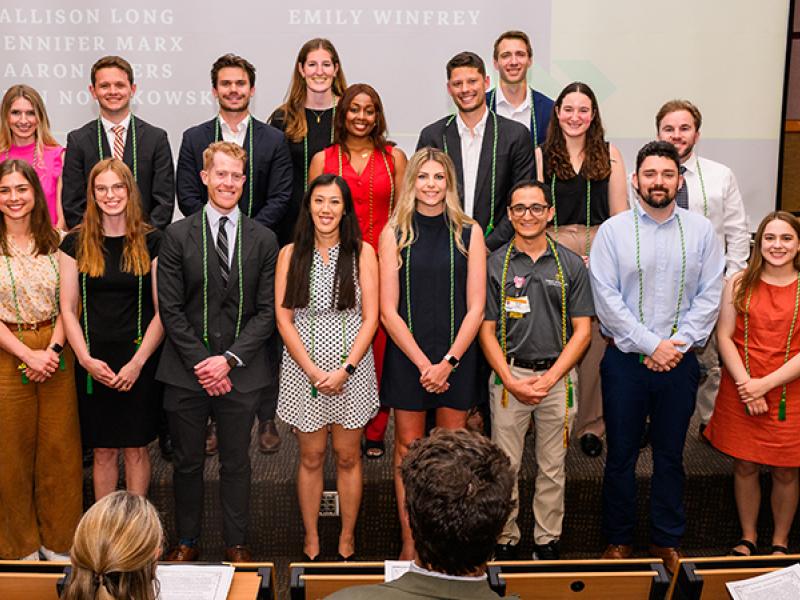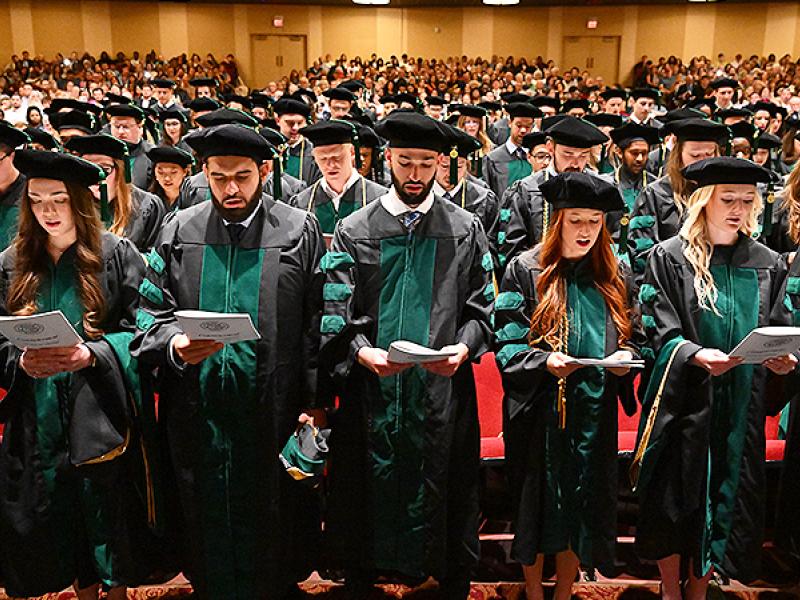(Approved by the Committee on Student Admissions, January 2025)
Due of our obligation to ensure that patients receive highly effective medical care, certain abilities are required of our students. All students of medicine must possess those intellectual, emotional, social and physical capabilities necessary to participate fully in the curriculum and which are essential to achieve the levels of competence required by the faculty. Students must be able to meet the standards described below, with or without accommodation, for successful completion.
Observation
Candidates for the medical degree must be able to make accurate observations and competently observe and perform a variety of procedures, including virtually.
Candidates must observe demonstrations and participate in scientific experiments, including but not limited to activities such as: dissecting cadavers; examining specimens in anatomy, pathology, and neuroanatomy laboratories; microscopic studying of microorganisms and tissues (both in normal and pathological states); review of diagnostic images and information.
Candidates must be able to observe and evaluate a patient accurately, at a distance and close at hand, in order to elicit information, describe changes in mood, activity and posture, and perceive nonverbal communications. They must be able to obtain a medical history and perform a complete physical examination and to develop an appropriate diagnostic and treatment plan.
Physical Abilities
Candidates must be able to tolerate physically and mentally taxing workloads, function effectively under stress, and to display flexibility and adaptability to changing environments. They must be able to elicit information from patients by palpation, auscultation, percussion, and other diagnostic maneuvers.
Motor Functioning
Candidates must possess motor skills necessary to complete integral components of the basic science curriculum (e.g. gross anatomy dissection) and integral components of the clinical curriculum (e.g. complete and interpret physical examinations, participate in surgical procedures, provide and/or direct emergency care for a patient, and provide and/or direct the provision of emergency treatment for a patient). These skills include both gross and fine muscular movements, equilibrium, and a functional use of the sense of touch.
Emotional Stability
Candidates must be able to contribute to collaborative, constructive learning and working environments; accept constructive feedback from others; and take personal responsibility for making appropriate positive changes. Candidates also need to possess the emotional stability and maturity to fully apply their intellectual skill, exercise good judgment, and to complete all responsibilities attendant to the diagnosis and care of patients.
Behavioral and Social Skills
Candidates must possess sufficient cognitive (mental) abilities and effective learning techniques to obtain, collect, memorize, analyze, integrate, process, and apply the volume of detailed and complex information presented by the curriculum. They must also exhibit sufficient interpersonal skills, knowledge and attitudes to interact positively and sensitively with people from all parts of society, ethnic backgrounds, and belief system.
Ethics and Professionalism
Candidates must possess the high moral and ethical standards demanded of physicians and the emotional health required for full utilization of their intellectual abilities, the exercise of good judgment, the prompt completion of all responsibilities attendant to the diagnosis and care of patients, and the development of mature, sensitive and effective relationships with patients. Candidates will behave in a trustworthy and ethical and moral manner consistent with professional values and standards.
Communication Skills
Candidates must be able to relate and communicate effectively, sensitively, and efficiently with patients, their families and members of the health care team to convey information essential for safe and effective care. They must be able to interpret and respond effectively to non-verbal aspects of communication. They must be able to read and record information accurately and clearly. Candidates must adhere to universal precaution measures and meet safety standards applicable to inpatient and outpatient settings and other clinical activities.
It is expected that minimum accommodation will be requested with regards to this set of standards.
Request for Reasonable Accommodations
Admitted candidates and matriculating students with disabilities’ requests for accommodation will be reviewed individually, on a case-by-case basis, with a complete and careful consideration of the skills, attitudes and attributes of the candidate. An accommodation will be deemed unreasonable if: it poses a direct threat to the health or safety of self and/or others; providing it requires a substantial modification in an essential element of the curriculum; it lowers academic standards; or poses an undue administrative or financial burden. Except in very rare instances, the use of surrogates to perform any of the functions described above will be considered an unacceptable method of accommodation.
Candidates and students can refer to the University of Missouri Campus’ policy on academic accommodations at the Disability Center page.
Ability to Meet Technical Standards
All candidates for admission and current medical students will be asked to attest that they have read these standards and that they meet the standards, either with or without accommodation. Should a change in ability to perform these standards occur, students could be released from the program. Such a release would follow an interview and review by medical school officials, and a recommendation from the Associate Dean for Student Affairs.





